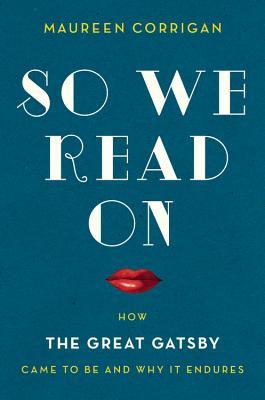2♠ 2♠ 2♠ 2♠ 2♠ 2♠ 2♠ 2♠
There once was a priest with cold, watery eyes, who, in the still of the night, wept cold tears.
The above quotation, one of the best first lines I’ve read in a while, begins F. Scott Fitzgerald’s short story “Absolution”. Of the Fitzgerald short stories I’ve read, this one ranks as my favorite and I’m pretty sure it will make it into my Top 10 at the end of this year.

The priest’s perspective frames the story at the beginning and the end. In between, we get the perspective of eleven year-old Rudolph Miller and his father. Rudolph’s father, a devout Catholic, often loses his temper much to the detriment of Rudolph’s physical safety and his fragile psyche.
Much of the story involves Rudolph’s guilt as he lies to his father and to the priest at confession and then takes communion without confessing his “sins”. Fitzgerald’s elegant narration brilliantly captures the snowball effect of Rudolph’s inability to cover up each misdeed with another one culminating in the fear of being poisoned as the priest places the bread on his tongue.
As Rudolph heads for what seems like a breakdown, he finally tells the priest everything – not necessarily in the traditional confessional situation but in simply a one-on-one meeting. While the reader gets a hint at what the priest might be thinking at the beginning of the story, it comes as a surprise, albeit a very legitimate one, that the priest now has a breakdown and instead of giving Rudolph penance or punishment, he tells him to go to an amusement park:
“Well, go to an amusement park.” The priest waved his hand vaguely. “It’s a thing like a fair, only much more glittering. Go to one at night and stand a little way off from it in a dark place – under dark trees. You’ll see a big wheel made of lights turning in the air, and a long slide shooting boats down into the water. A band playing somewhere, and a smell of peanuts – and everything will twinkle. But it won’t remind you of anything, you see. It will all just hang out there in the night like a colored balloon – like a big, yellow lantern on a pole.”
According to Maureen Corrigan in her book So We Read On, this story has been considered a precursor to The Great Gatsby. Some minor details might point to this such as a brief mention that Rudolph is not from a wealthy family and Rudolph’s imagining himself as another person with another name – perhaps the way James Gatz became Jay Gatsby; however, if I had not been aware of this prior to reading the story, I don’t think I would have found much of a connection. The story stands on its own.
But then maybe the priest became the Gatsby character?
I read this story when I selected the Two of Spades (my second wild card in a row) for Week 27 of my Deal Me In 2017 short story project. It’s included in my copy of The Short Stories of F. Scott Fitzgerald. My Deal Me In list can be found here. Deal Me In is hosted by Jay at Bibliophilopolis.





 l
l



